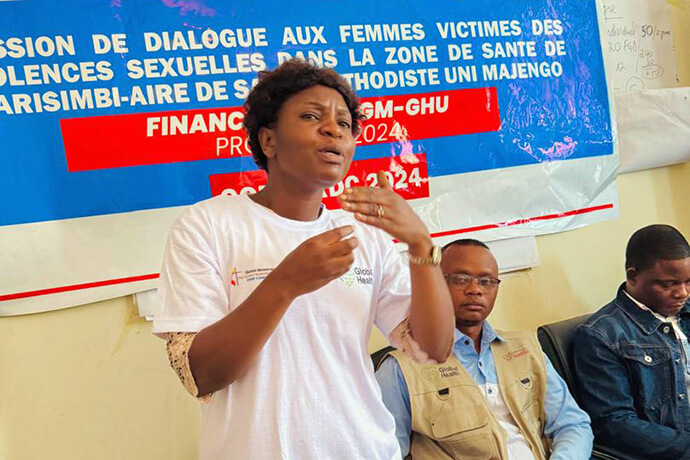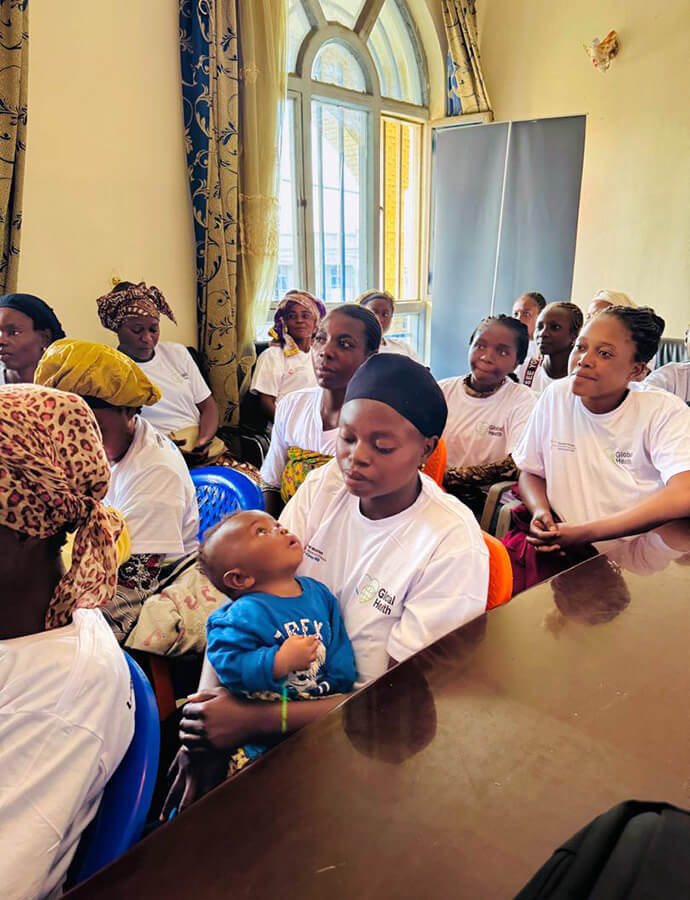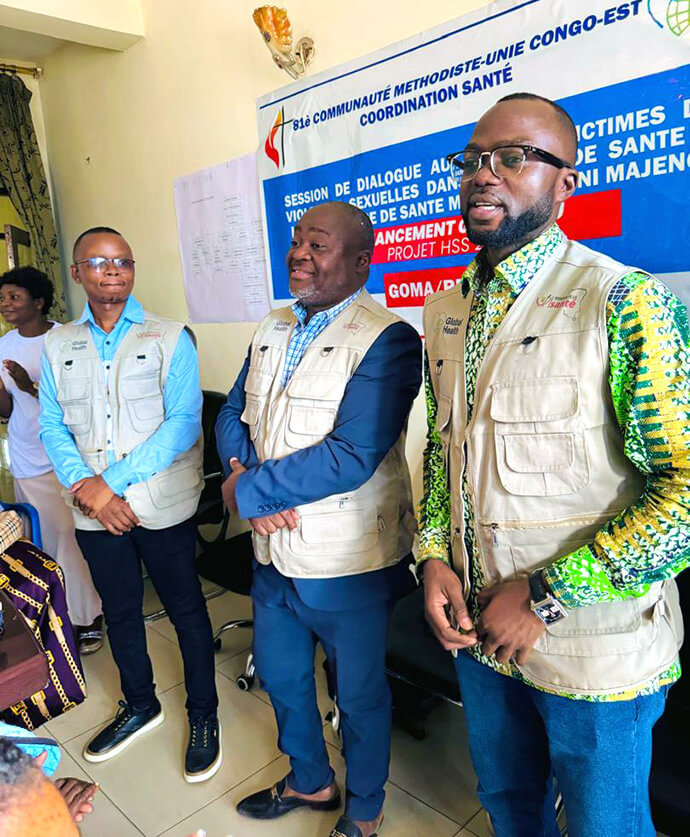
Key points:
- A project funded by the United Methodist Board of Global Ministries is helping sexual-assault survivors in Goma through psychological support, discussion workshops and vocational training.
- The goal is to help beneficiaries regain confidence and dignity through income-generating activities and become agents of change in their communities.
- The M23 offensive in eastern Congo has caused massive displacement and an upsurge in sexual violence.
As conflict continues to ravage eastern Congo, a humanitarian project of The United Methodist Church is helping to restore hope and dignity to dozens of women who have been victims of sexual violence.
“The situation of sexual violence in eastern DRC (Democratic Republic of Congo), particularly around the cities of Goma and Bukavu, remains tragically alarming, especially in the context of armed conflict and mass displacement linked to the capture or control of these areas,” said Dr. Damas Lushima, coordinator of the church’s health board in the East Congo Episcopal Area.
Nearly 7,400 sexual violence survivors were treated by Doctors Without Borders in North Kivu between January and April of 2025, the organization reports.
The Rwanda-backed M23 rebels launched a major offensive in early 2025 that enabled them to take control of the strategic cities of Goma and Bukavu. The conquest led to violent clashes with the Congolese army, a massive influx of displaced people and an unprecedented humanitarian crisis marked by food and medical shortages, increased violence against civilians and the disruption of public services.
Lushima said that a community campaign identified survivors and invited them to workshops on speaking out, trauma management and empowerment. The gatherings provided a safe and confidential space to share, combating the isolation many women feel.

Funded by the Global Health unit of the United Methodist Board of Global Ministries and implemented by the church’s health board in eastern Congo, the project has helped 30 women cope with physical and psychological trauma.
Marie Kanyere, one of the participants, said, “The group sessions helped me understand that I was not alone. Together, we found the strength to heal and support each other.”
Lushima said the collective healing process also raises awareness in the community about the need to break down stigma and promote a culture of respect and solidarity.
To ensure their recovery is complete and sustainable, the women beneficiaries also have been supported in setting up income-generating activities. Lushima said thanks to the financial support of United Methodists, several women have been able to start small businesses — a crucial step toward their independence.
“Some sell charcoal, others sell bags of cassava flour, and still others sell doughnuts,” Lushima said. “These small businesses, vital to their survival and that of their families, enable them to provide for themselves and regain economic status in their communities, moving from the role of victim to that of actors in their own lives.”
This financial support gives many of the women a sense of dignity and control over their future, said beneficiary Aline Byamungu, adding that the project has been a lifesaver for her family.
“This project has helped me to earn a living to provide for my children,” she said. “I feel useful and respected again in my community.”

Some survivors, such as Neema Lakiwa, have become ambassadors for awareness within their communities. Lakiwa recalled how she used to lock herself in her house and didn’t even talk to neighbors.
“I found the strength to resume my activities, and today I support other women. I have regained my dignity,” she said.
Dr. André Omatete, supervisor of the Kivu health sector for the Department of Health, expressed his pride in seeing these women “regain their confidence and become ambassadors for awareness in their neighborhoods.”
Lushima said that the success of this project demonstrates the importance of a strong partnership between Global Ministries, local communities and professionals in the field.
Subscribe to our
e-newsletter
“Thanks to this support, we have provided concrete and sustainable solutions while strengthening community resilience in the face of stigma. Several survivors are now involved in awareness-raising, becoming true ambassadors of change,” he said.
The project is one of several funded through a Global Health emergency and response grant. The money has provided a broad range of programming in places affected by insecurity, particularly in three rural areas where the church has health centers.
“(The grant) helped to fund women’s support groups at Majengo, Bukavu and Irambo over several years. These have become income-generation groups,” said Kathleen Griffith, director of Global Ministries’ Global Health unit.
“Majengo has a government social worker offering counseling, and community health workers have been trained in this also — auxiliary social workers. We hope to promote this kind of training much more,” she said.
Recently retired Bishop Gabriel Yemba Unda welcomed the initiatives as a concrete response to the biblical call to support the oppressed and restore broken lives.
“When a woman is healed, so are the children and the nation,” Unda said. “Where suffering disfigures humanity, the church must be the face of compassion. Our mission is not only to preach but to heal wounds, restore dignity and build peace.”
Londe is a UM News correspondent in Congo.
News media contact: Julie Dwyer at newsdesk@umnews.org. To read more United Methodist news, subscribe to the free UM News Digest.


